-
 +1 +1
+1 +1Oral Health Effects Of Diabetes
Diabetes is a disease characterized by hyperglycaemia. People with this condition are 2-5 times more likely to develop gum diseases than someone without diabetes.
-
 0 +1
0 +1Diabetes | Type 1 Diabetes | Type 2 Diabetes | Lifestyle changes | Medeaz
Diabetes is a condition characterized by high blood glucose levels. This condition can be prevented by regular physical activity, proper diet and weight management.
-
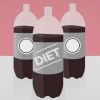 +15 +1
+15 +1Drinking two or more diet beverages a day linked to high risk of stroke, heart attacks
More bad news for diet soda lovers: Drinking two or more of any kind of artificially sweetened drinks a day is linked to an increased risk of clot-based strokes, heart attacks and early death in women over 50, according to a new study by the American Heart Association and American Stroke Association. The risks were highest for women with no history of heart disease or diabetes and women who were obese or African-American.
-
 +13 +1
+13 +1Human cells can change job to fight diabetes
Traditional cell biology textbooks say that most cells can only differentiate to the same cell type, with the same function. It seems that some of these textbooks need to be rewritten, thanks to the new results by researchers at the University of Bergen and their international partners at Université de Genève (UNIGE), Harvard Medical School, Universiteit Leiden and the Oregon Stem Cell Center (OHSU).
-
 +2 +1
+2 +1Insulin produced by cone snails could help design better diabetes treatments.
Insulin is a hormone critical for maintaining healthy blood sugar levels in humans. When the insulin system becomes faulty, blood sugar levels become too high, which can lead to diabetes. At the moment, the only effective treatment for one of the major types of diabetes are daily insulin injections. However, designing fast-acting insulin drugs has remained a challenge. Insulin molecules form clusters (so-called hexamers) that first have to dissolve in the body to activate the insulin receptor, which plays a key role in regulating the blood sugar levels throughout the body. This can take time and can therefore delay the blood-sugar control.
-
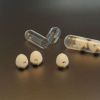 +47 +1
+47 +1New pill can deliver insulin
Capsule that releases insulin in the stomach could replace injections for patients with type 2 diabetes.
-
 +17 +1
+17 +1Stem cell breakthrough could help cure type 1 diabetes
Scientists have edged one step closer to a major treatment for (and possibly cure for) type 1 diabetes. A UCSF team has claimed it's the first to turn human stem cells into the mature, insulin-producing cells that type 1 patients don't have. The key was to acknowledge a reality in the development of islets, or clusters of healthy beta cells (which generate insulin) in the pancreas. They separated partly differentiated pancreatic stem cells into islets, jumpstarting their development and leading to responses to blood sugar that more closely represented mature cells. Even alpha and delta cells grew more effectively, UCSF said.
-
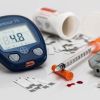 +26 +1
+26 +1Unnecessary Testing Proves Costly for Patients With Type 2 Diabetes
Patients with Type 2 diabetes might be testing their blood sugar too often, potentially costing the healthcare system millions, according to a new study. Of the more than 370,000 patients, 23.4 percent filled three or more claims for test strips over the year, and more than half of those individuals were deemed to be using the supplies inappropriately, researchers found. A median of two strips were used a day, making the average claims cost for test strips $325.54 per person per year.
-
 +19 +1
+19 +1Diabetes can be diagnosed by simply shining a light on your skin
Shining a light onto the skin could become a new test to see if people are in the earliest stages of diabetes and heart disease. The approach may offer a way of screening people for these health conditions that’s quicker and easier than current methods that include blood tests, and assessing risk factors such as people’s weight and family history.
-
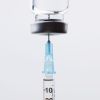 +25 +1
+25 +1Parents Deliver Ashes of Diabetic Children to Price-Gouging Insulin Manufacturer
When people die from lack of access to medicine, health care profiteers should expect resistance. By Mike Ludwig.
-
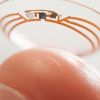 +31 +1
+31 +1Alphabet stops its project to create a glucose-measuring contact lens for diabetes patients
Verily, Alphabet's life sciences arm, has paused work on its so-called "smart lens" program, which was aiming to put tiny sensors on contact lenses to measure blood sugar levels in tears. If it worked, the lenses could help diabetics track their glucose levels in real time and in less invasive ways than the traditional meters that require piercing the skin. But in a blog post on Friday, Verily said that after four years of research it has determined that detecting blood sugar in tears is a massive — and potentially insurmountable — technical and scientific undertaking.
-
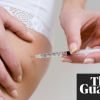 +14 +1
+14 +1'Spectacular' diabetes treatment could end daily insulin injections
A potential medical breakthrough that could put an end to the daily insulin injections endured by people living with diabetes has been unveiled by Dutch scientists. By destroying the mucous membrane in the small intestine and causing a new one to develop, scientists stabilised the blood sugar levels of people with type 2 diabetes. The results have been described as “spectacular” – albeit unexpected – by the chief researchers involved.
-
 +14 +1
+14 +1Diabetic woman, 27, died after slipping into a coma when her benefits were stopped and she ‘couldn’t afford to eat’
A man says he blames the Government for the death of his partner who slipped into a diabetic coma after her benefits were stopped. Amy Driver, 27, was given a four-week sanction after she missed one appointment at the Job Centre due to a hospital appointment, Clifford Watson claims. Clifford, who cannot work due to a disability, said the halt in their income meant she couldn’t afford to eat properly – which triggered the low blood sugar attack.
-
 +13 +1
+13 +1Living near food outlets linked to higher rates of type 2 diabetes
People who live in cities with a high density of food outlets such as takeaways, restaurants and fast-food vendors have an 11% higher risk of developing type 2 diabetes than those who live far from an instant meal, according to new research. Previous studies have suggested having fast food on the doorstep is a risk factor for obesity, but this is the largest to focus on type 2 diabetes, which is associated with obesity.
-
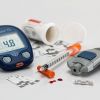 +28 +1
+28 +1Planned intermittent fasting may help reverse type 2 diabetes, suggest doctors
Planned intermittent fasting may help to reverse type 2 diabetes, suggest doctors writing in the journal BMJ Case Reports after three patients in their care, who did this, were able to cut out the need for insulin treatment altogether. Around one in 10 people in the US and Canada have type 2 diabetes, which is associated with other serious illness and early death. It is thought to cost the US economy alone US$245 billion a year.
-
 +16 +1
+16 +1Vindication: dietitians cut ties with sugar lobby
The Dietitians Association of Australia has pledged to cut financial ties with the sugar lobby following a series of investigations by science journalist Dr Maryanne Demasi for michaelwest.com.au.
-
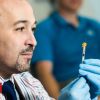 +19 +1
+19 +1'Ground-breaking' diabetes insulin drug
A "ground-breaking" drug that helps people with diabetes re-grow insulin-making cells has been developed. About 19,000 people live with Type 1 of the condition in Wales and 90% have less than 5% of these cells left. This means they have to inject insulin but it is hoped the new drug will mean patients may not have to in the future. The trials are being conducted by researchers at Cardiff and Vale University Health Board and two people have already been given the drug.
-
 +39 +1
+39 +1Insulin's High Cost Leads To Lethal Rationing
Alec Raeshawn Smith was 23 when diagnosed with Type 1 diabetes and 26 when he died. He couldn't afford $1,300 per month for his insulin and other diabetes supplies, so he tried to stretch the doses.
-
 +38 +1
+38 +1The $250 Biohack That’s Revolutionizing Life With Diabetes
DIYers used a security flaw to bypass the $8.3 billion insulin delivery business with a cobbled-together artificial pancreas. By Naomi Kresge, Michelle Cortez.
-
 +20 +1
+20 +1This pill could reverse type 2 diabetes
It could deliver the same benefits as gastric bypass surgery, with fewer risks.
Submit a link
Start a discussion




















